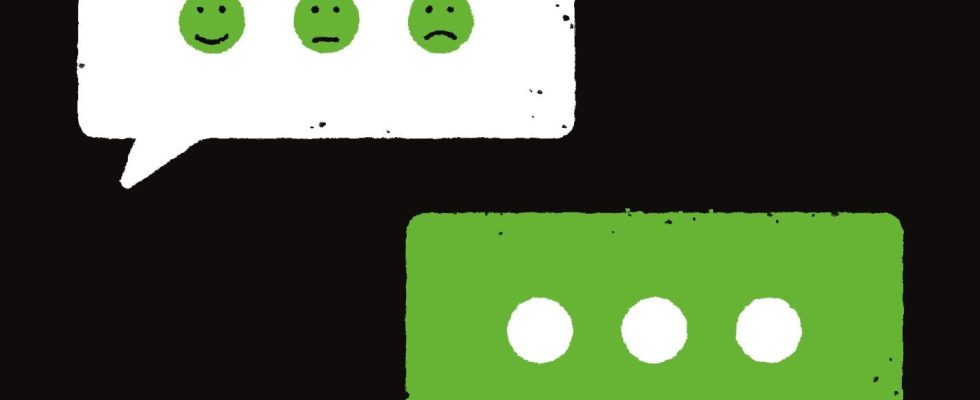Faced with a heart attack, hemorrhage or choking, first aid training teaches us the actions that save. A program that appeared in Australia in the year 2000 is inspired by this and applies this principle to mental suffering. In a quarter of a century, more than 6 million people around the world have become mental health first aiders. It was about time, given the scale of the task… which has become even worse with Covid-19. In Europe, a quarter of adults suffer from a mental disorder.
For 250 euros, we followed the two-day mental health first aid course. A dozen participants, mostly women, including human resources executives or a start-up salesperson. The Franco-British host Brian Smith plays the interaction card and adds a bit of his English humor, which is appreciated given the subjects covered. They fall into four categories: depression, anxiety, addictions and psychotic disorders.
Protect, alert and rescue are the three key words of “physical” first aid. For their psychic counterpart, the attitude to adopt is summarized by the acronym Aerer which lists five actions: approach the person; listen actively and without judgment; comfort her; encourage him to go to a professional; and finally, inform her about other available resources (such as support groups or the 3114 number).
The most obvious contribution of the training concerns suicide prevention. The trainer lists alarming statistics. There are 9,000 deaths by suicide each year in France, a toll three times higher than road accidents. Someone attempts to end their life every four minutes. Half are under 25!
Make discussion easier
We volunteer for a role-play. It involves playing the role of a resident visiting his neighbor, who has been isolating for several weeks – himself played by another participant. We must, tactfully but frankly, question him about his morale. Without dodging sensitive questions. “Are you having dark thoughts?”, “Are these suicidal thoughts?”, “Do you know how you plan to go about it?”. An uncomfortable exchange, although fictitious, which confronts us with the fear of offending the other. However, “it is better to feel this embarrassment than to lose the person”, underlines Brian Smith. For someone who is thinking about ending their life, being able to open up about it to a third party provides real relief that calms, at least temporarily, their anxiety. It is then appropriate to refer them to a doctor or accompany them to psychiatric emergencies.
The scenario is stirring, but it shows by example that it is possible to emerge from silence. This is the whole point of using a methodology that has proven itself: the framework allows you to overcome your fears and imposter syndrome to dare to reach out to others despite the absence of medical background. “The Aerer framework makes discussion easier and alleviates the fear of being illegitimate,” confirms Brian Smith. It should be noted that first aid for mental health is mainly applied to loved ones: colleagues, neighbors or friends. In no case is it a question of replacing health professionals, but of getting the person to consult.
During the Mental Health and Psychiatry Conference, the Ministry of Health had put forward a target of 60,000 first aiders in 2023. A target largely exceeded: there were 97,000 as of December 31. HR managers, staff representatives, occupational physicians, but also employees sensitive to the issue are showing a growing interest in the subject. Good news, while feeling unwell continues to get worse In the working world.
